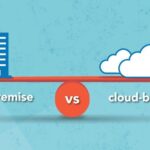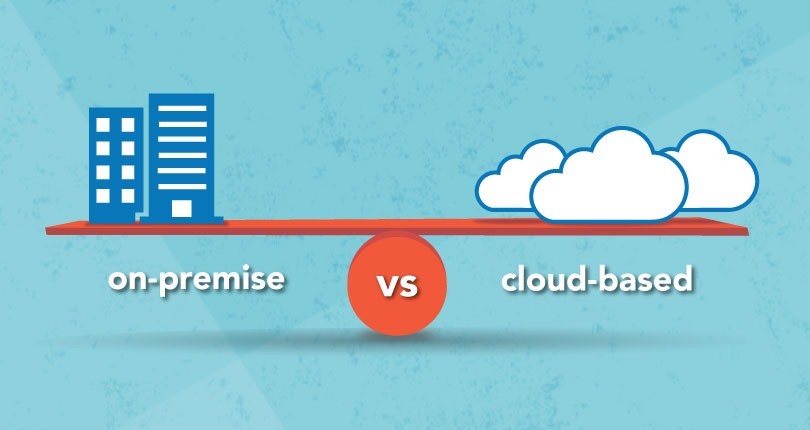Managing a small or medium business already has many duties. You must care for customers, handle daily tasks, and spend money wisely. But now, another layer to manage is ensuring your company follows all the new data protection laws. Keeping customer data safe and hackers away might seem like a big task, mainly if you don’t have a whole tech team.
That’s where a cloud firewall can help. They quietly guard your systems, block unwanted access, and help prove that you’re doing things right—so you don’t face fines or lose customer trust. Whether you’re handling emails, online payments, or customer records, cloud firewalls can make data safety simpler and smarter, even for small businesses.
In this blog, we will explore how cloud firewalls help SMBs stay compliant with data laws and why they are becoming a must-have for businesses of all sizes.
Why is Compliance Important for SMBs?
For small and mid-sized businesses (SMBs), staying compliant with data laws is crucial for long-term success. Here’s why compliance is important:
- Protects Your Business: Compliance helps prevent costly fines or legal issues from not following data protection laws.
- Builds Customer Trust: Customers want to know their personal information is safe. Compliance reassures them that you’re handling their data responsibly.
- Improves Business Opportunities: Many companies only work with partners who follow data protection regulations, so staying compliant can open doors for new partnerships and markets.
By ensuring compliance, you avoid risks, keep your customers’ trust, and stay competitive. Simple steps, like cloud firewalls or zero trust approach, can help your business stay on the right track without the complexity.
What Is a Cloud Firewall?
A cloud firewall is a security tool that helps protect your business’s data and networks from online threats. Unlike traditional firewalls installed on physical servers, a cloud firewall works over the internet and is easy to set up and manage.
- Protection Anywhere: Since it’s cloud-based, it secures your business data no matter where you access it.
- Keeps out Threats: It blocks harmful traffic, like hackers or malware, from reaching your systems.
- Easy to Scale: As your business grows, you can easily adjust the firewall’s protection without needing extra hardware.
A cloud firewall makes it simple to secure your business without needing a dedicated IT team. It gives you peace of mind while keeping you compliant with data laws.
Role Cloud Firewalls in Supporting Data Law Compliance
Cloud firewalls play a crucial role in helping businesses comply with data laws, offering a simple yet effective way to protect sensitive information. They are a barrier between your network and potential threats, ensuring only authorized users can access data. Let’s explore how they help with data law compliance:
-
Ensuring Data Protection
Cloud firewalls help protect customer data by blocking unauthorized access and cyber threats. They act as a guard for your network, ensuring that only trusted users can access sensitive information. By preventing malicious traffic from entering your system, these firewalls reduce the chances of data breaches, which could lead to non-compliance with data laws.
Using Secure Access Service Edge (SASE) technologies can further enhance this protection by ensuring that access to your network is secure, no matter where users are located.
-
Monitoring and Logging
One key role of cloud firewalls is monitoring and logging network activities. This allows businesses to track who accessed their data and when. Logs are crucial during audits, as they provide clear records of your data protection efforts. They also show that you’re actively following data laws and can be used to prove compliance if necessary.
-
Blocking Malicious Activities
Cloud firewalls are designed to block harmful activities, such as hacking attempts, viruses, and malware. By filtering out these threats before they reach your network, firewalls help prevent data breaches. Keeping your systems safe from cyberattacks reduces the risk of violating data protection laws, especially those that require strict safeguards against unauthorized access.
-
Access Control
Access control is a vital feature of cloud firewalls. They allow businesses to set rules about who can access specific data and systems. By enforcing these controls, you can ensure that only authorized personnel or users can view or modify sensitive information. This minimizes the chances of accidental or intentional data leaks, helping you stay in compliance with regulations like GDPR and HIPAA.
-
Simplified Compliance Management
Cloud firewalls simplify compliance by automatically updating to meet the latest data protection standards. Rather than manually adjusting security settings to comply with new regulations, firewalls handle these updates for you, making it easier for SMBs to maintain compliance without needing a dedicated IT team, leading to saving both time and money while keeping your data safe.
By incorporating cloud firewalls into your security strategy, you can protect sensitive data and ensure your business stays compliant with the ever-evolving data protection laws.
5 Benefits of Using Cloud Firewalls for Compliance
Cloud firewalls offer businesses an affordable and effective way to ensure compliance with data protection regulations. They provide strong security, flexibility, and ease of management, making them ideal for organizations of all sizes. Here are the key benefits:
-
Affordable Solution for Compliance
Cloud firewalls are cost-effective compared to traditional firewalls. With a subscription-based model, businesses only pay for the services they need, eliminating expensive hardware. This pricing structure is especially helpful for small and medium-sized businesses (SMBs) that need quality security without straining their budget.
-
Continuous Monitoring and Audit Trails
Cloud firewalls offer real-time monitoring of network traffic and detailed audit trails, essential for compliance. Businesses can track data access and activities, helping them maintain clear records for audits. Continuous monitoring allows companies to detect threats early, ensuring that they stay compliant with regulations while minimizing the risk of data breaches.
-
Secure Remote Access for Employees
Cloud firewalls allow businesses to securely manage remote access for employees, which is essential as remote work becomes more common. These firewalls control who can access sensitive data, ensuring only authorized personnel can view or modify it. This helps businesses maintain compliance with data protection laws even when employees work from different locations.
-
Compatibility with Other Security Frameworks
Cloud firewalls easily integrate with other security solutions, such as SASE. This compatibility allows businesses to strengthen their overall security and ensure comprehensive protection. By incorporating cloud firewalls with different tools, businesses can better meet complex data protection regulations and streamline their compliance management process.
-
Scalable and Flexible Security
Cloud firewalls are highly scalable, which means they can grow with your business. Whether you expand your network, add more users, or handle more data, cloud firewalls can adjust to meet these needs. This flexibility ensures that businesses continue to meet compliance requirements as they grow without the need for significant infrastructure changes.
In brief, adopting cloud firewalls helps businesses maintain compliance with data laws while providing a secure, flexible, and affordable solution to protect sensitive data.
Final Words
Cloud firewalls offer SMBs a cost-effective, scalable, and secure solution to help them comply with data protection laws. Cloud firewalls ensure that sensitive data remains protected from threats while meeting regulatory requirements by providing continuous monitoring, secure remote access, and seamless integration with other security tools. Adopting a cloud firewall solution can make compliance easier and more manageable for businesses, helping them focus on growth while safeguarding customer data.










